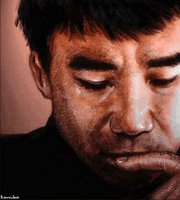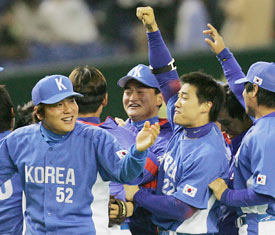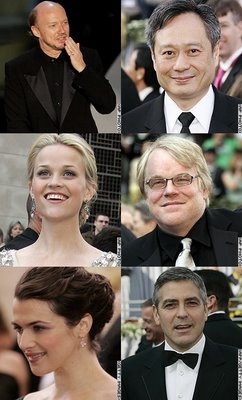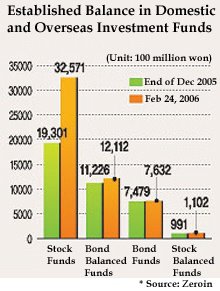
HARUKI MURAKAMI
Salon Magazine, By Laura Miller
Haruki Murakami on the darkness of the subconscious, the Aum cult subway attack and being an individualist in Japan.
The heroes in HarukiMurakami's dazzling, addictive and rather strange novels (A Wild Sheep Chase, Hard-Boiled Wonderland and the End of the World) don't fit the stereotype of conformist, work-obsessed Japanese men at all. They're dreamy, brainy introverts, drunk on culture (high and pop), with a tendency to get mixed up with mysterious women and outlandish conspiracies. Toru Okada, the narrator of Murakami's latest opus, The Wind-Up Bird Chronicle, spends a good portion of the novel in luxuriant unemployment -- cooking, reading, swimming and waiting for a series of peculiar characters to pop by and tell him their tragic stories. Since Murakami doesn't hide his identification with his heroes, it's no surprise to learn that he has long felt like an odd man out in his native land, even among other writers. What's more remarkable is the novelist's recent rapprochement with Japan and his countrymen, culminating in the year he spent interviewing victims of the Aum cult's poison gas attack on a Tokyo subway in March 1995.
Murakami says this reassessment began during the four years he spent at Princeton, writing The Wind-Up Bird Chronicle. Besides giving him an impressive command of English, Murakami's sojourn in America had an emotional impact that he finds difficult to articulate even today, two years after his return to Japan. With Wanderlust editor Don George, who stepped in to translate at a key moment, I met with Murakami during his brief West Coast book tour to promote Wind-Up Bird Chronicle. The novelist's slow, careful responses to our questions seemed more the result of a rare, utterly unself-conscious sincerity (he seldom gives interviews) than any language barrier.
Question.- How did you get the idea for The Wind-Up Bird Chronicle? Answer.- When I started to write, the idea was very small, just an image, not an idea actually. A man who is 30, cooking spaghetti in the kitchen, and the telephone rings -- that's it. It's so simple, but I had the feeling that something was happening there.
Q.- Are you always surprised by what happens in the story, almost as if you were reading it yourself, or do you know where it's going after a certain point? A.- I have no idea. I was enjoying myself writing, because I don't know what's going to happen when I take a ride around that corner. You don't know at all what you're going to find there. That can be thrilling when you read a book, especially when you're a kid and you're reading stories. It's very exciting when you don't know what's going to happen next. The same thing happens to me when I'm writing. It's fun.
Q.- You deal with some topics in this book that are new to you. You have one character describe some truly horrible experiences from World War II. Why did you decide to explore that? A.- I'd been trying to write about the war, but it wasn't easy for me. Every writer has his writing technique -- what he can and can't do to describe something like war or history. I'm not good at writing about those things, but I try because I feel it is necessary to write that kind of thing. I have drawers in my mind, so many drawers. I have hundreds of materials in these drawers. I take out the memories and images that I need. The war is a big drawer to me, a big one. I felt that sometime I would use this, pull something out of that drawer and write about it. I don't know why. Because it's my father's story, I guess. My father belongs to the generation that fought the war in the 1940s. When I was a kid my father told me stories -- not so many, but it meant a lot to me. I wanted to know what happened then, to my father's generation. It's a kind of inheritance, the memory of it. What I wrote in this book, though, I made up -- it's a fiction, from beginning to end. I just made it up.
Q.- Did you do much research for those sections? A.- I did do research, a little. I was at Princeton when I was writing that book and they have a big library there. I was free to do anything in those days, and I went to the library every day, reading books, mostly history books. They have a good collection of books about what happened on the Mongolian and Manchurian border. Most of those facts were new for me. I was surprised to find that it was so absurd and cruel and bloody. I went to Manchuria and Mongolia after I finished the book, which is strange. Most people go to a place to research before writing the book, but I did the opposite. Imagination is the most important asset of mine, so I didn't spoil my imagination by going there.
Q.- This book also feels more Japanese. Some of your other books seem, to Western readers, as if the characters could be Western. A.- Really?
Q.- Yes. Perhaps because your characters are so fond of Western culture. It doesn't feel, reading them, that the story is happening in Japan -- but that's the impression of a Western reader. This book, however, definitely feels more focused on Japan. Why did you decide to do that? A.- That's because I was living in the States! I was here from 1991 to 1995, which was when I was writing this book. That's the reason why I was looking at my own country and my own people. When I was writing my other books, in Japan, I just wanted to escape. Once I got out of my country, I was wondering: What am I? What am I as a writer? I'm writing books in Japanese, so that means I'm a Japanese writer, so what is my identity? I was thinking about that all the time when I was here. I think that's one of the reasons I wrote about the war. In a way we were lost, the Japanese. We have been working so hard since just after the war. We were getting rich. We reached a certain stage, but after reaching it, we asked ourselves: Where are we going? What are we doing? It's a sense of loss. Also I guess I am looking for some reason or cause to write. It isn't easy to explain. It's too hard for me.
Q.- How did Japan seem to you once you were far away? A.- [A long pause] It is too big a thing.
Q.- Would you like to try in Japanese? A.- [In Japanese] Even in Japanese, it is very difficult to explain ...
Q.- [Wanderlust Editor Don George, in Japanese:] Is it that if you are looking at your own country from a distance, from another country, the meaning of being Japanese -- what it is to be Japanese -- becomes clearer? When you are in Japan, living in Japan, you just don't think about such things -- but when suddenly you find yourself in another country, you get a different perspective on what it is to be Japanese. A.- Yes, that's part of it, but ... It's really too overwhelming for me to talk about, to articulate. Can we move to another subject?
Q.- Certainly. Your heroes don't conform to the hard-working Japanese ethos that you observe was so powerful after the war. What do you like about characters like Toru in The Wind-Up Bird Chronicle, who is unemployed and stays home a lot? A.- I myself have been on my own and utterly independent since I graduated. I haven't belonged to any company or any system. It isn't easy to live like this in Japan. You are estimated by which company or which system you belong to. That is very important to us. In that sense, I've been an outsider all the time. It's been kind of hard, but I like that way of living. These days, young people are looking for this kind of living style. They don't trust any company. Ten years ago, Mitsubishi or other big companies were very solid, unshakable. But not anymore. Especially right now. Young people these days don't trust anything at all. They want to be free. This system, our society, they won't accept such people. So these people have to be outsiders, if they graduate from school and don't go to any company. These people are becoming a big group in our society these days. I can understand their feelings very well. I am 48, and they are in their 20s or 30s, but I have a Web page and we're corresponding with each other and they're sending me so many e-mails saying that they appreciate my books. It's very strange. We are so different, but we can understand each other very naturally. I like that naturalness. I feel that our society is changing. We were talking about my heroes. Maybe my readers are feeling some kind of empathy or sympathy with those heroes. I believe so. My stories appeal to some sense of liberty or freedom in my readers.
Q.- Your heroes live a little bit like writers because they work on their own. Is it hard to be a writer in Japan? A.- It's not that hard. I'm the exception. Even the writers in Japan have made a society, but not me. That's one reason why I keep escaping from Japan. That's my privilege. I can go anywhere. In Japan the writers have made up a literary community, a circle, a society. I think 90 percent of Japan's writers live in Tokyo. Naturally, they make a community. There are groups and customs, and so they are tied up in a way. It's ridiculous, I guess. If you're a writer, an author, you're free to do anything, go anywhere, and that's the most important thing to me. So, naturally, they mostly don't like me. I don't like elitism. I am not missed when I'm gone.
Q.- Do they have a problem with what you write? A.- I love pop culture -- the Rolling Stones, the Doors, David Lynch, things like that. That's why I said I don't like elitism. I like horror films, Stephen King, Raymond Chandler, detective stories. I don't want to write those things. What I want to do is use those structures, not the content. I like to put my content in that structure. That's my way, my style. So both of those kinds of writers don't like me. Entertainment writers don't like me, and serious literature people don't like me. I'm kind of in-between, doing a new kind of thing. That's why I couldn't find my position in Japan for many years. But I'm feeling that things are changing drastically. I'm gaining more territory. I have had my very loyal readers in these 15 years or so. They're buying my books, and they're on my side. The writers and critics are not on my side. I'm feeling responsibility as a Japanese writer more and more as I gain territory. That's what's happening to me right now and that's why I came back to Japan two years ago. Last year I wrote a book about the sarin gas attack on the subway train in Tokyo in March 1995. I interviewed 63 victims who were on the train that day. I did it because I wanted to interview ordinary Japanese people. It was a weekday, a Monday morning -- 8:30 or something like that. They were commuting to the center of Tokyo. It was packed, as you know, rush hour, and you can't move, you're like this [hunches shoulders together]. But they are very hard-working people, ordinary people, ordinary Japanese, and they were attacked with poison gas for no reason at all. It was ridiculous. I just wanted to know what happened to them. Who are those people? So I interviewed them one by one. It took one year, but I was impressed to find who those people are. So, I myself hate those company people -- salarymen, businesspeople. But after those interviews, I had some compassion for them. Honestly, I don't know why they are working so hard. Some of them got up at 5:30 in the morning to commute to the center of Tokyo. It takes more than two hours by train, all of it packed like this [hunches]. You can't even read a book. But they are doing that for 30 or 40 years. That's incredible to me. They come home at 10 p.m. and their kids are sleeping. The only day they see their children is Sunday. It's horrible. But they don't complain. So I asked them why not and they said it's no use. It's what all the people are doing, so there's no reason to complain.
Q.- Do they envy you? A.- No, they don't. They're used to it. They have been doing that life for many years. They don't have any alternative. There's a similarity between the cult people and ordinary people. When I studied those interviews, the similarity was in my mind. When I finished, I was looking at the difference instead. It's hard to say. In other words, I love those people. I'm listening to their stories of their childhood. I asked, who were you as a child? Who were you in high school? What kind of person were you when you married? What kind of girl did you marry? There are so many stories in their lives. Each person has his own interesting stories and that was very exciting to me. Now when I ride on the train, and when I see people like that, I don't know them, but I'm feeling more comfortable with them right now. I can see that these people have their own stories. Those interviews did good to me. I guess I'm changing.
Q.- What was the reaction to that book? A.- I had many letters from readers. They were so impressed. Some were encouraged. It was a strange reaction to a crime nonfiction book. But they said they were encouraged. People are working so hard and so sincerely, and they were moved by that. This isn't the same as what we used to think -- that working so hard was a good thing. It's not that. It's a kind of compassion.
Q.- Did you interview cult members? A.- I'm doing it right now. I'm feeling very sorry for them. Those people are young, mostly in their 20s. They're very serious people, idealistic. They were thinking so seriously about the world and value systems. I was born in 1949 and I was in the university in the late '60s, a time of revolution and counterculture. We used to be idealistic, our generation, but it's gone. And the bubble economy came. Those young people are kind of the same, idealistic, and they are not able to belong to the system. Nobody accepts them, and that's why they went to the cult. They were saying that money doesn't mean anything to them. They want something more precious, a more valuable thing. A spiritual thing. It's not a bad idea. It's not wrong. But nobody can offer hem what they want, only cult people can do that. They don't have a checking system, to decide what is right and what is wrong. We haven't given them those judging systems. I suppose that we authors have a responsibility for that. If I give you the right story, that story will give you a judging system, to tell what is wrong and what is right. To me, a story means to put your feet in someone else's shoes. There are so many kinds of shoes, and when you put your feet in them you look at the world through other people's eyes. You learn something about the world through good stories, serious stories. But those people weren't given good stories. When Asahara, the Aum guru, gave them his story, they were so tied up by the power of his story. Asahara, he's got some kind of power that's turned to evil, but it's a powerful story he gave them. I feel sorry about that. What I'm saying is that we should have given them the good story.
Q.- In The Wind-Up Bird Chronicle, Toru's brother-in-law, Noboru, is a very interesting character, like a media pundit who goes on TV to talk about politics and economics, but he doesn't believe in anything. He just says whatever is strategic. What inspired him? A.- TV [laughs]. I don't watch it generally, but if you watch it from morning to night, just for one day, you could make up that kind of person. He can talk, but he's very shallow. He has nothing inside him. There are so many of that kind of person in Japan, and many in the States. So many nationalists in Japan are that kind of shallow person. I feel there's some kind of danger in the presence of those people. We can laugh at them, but it's dangerous at the same time.
Q.- Are you afraid of fascism or something like that? A.- Fascism is not the right word -- nationalism and revisionism. They're saying there was no Nanking Massacre and no trouble with comfort women [Chinese and Korean women who were forced into sexual slavery by the Japanese Army]. They're remaking history. That's very dangerous. I went to Manchuria a couple of years ago and visited some villages. The villagers told me, "Japanese soldiers massacred four or five dozen people here." They showed me the mass grave -- it's still there. It's shocking and nobody can deny the fact, but they are doing it. We can go forward, but we have to remember the past. We don't have to be tied by the past, but we have to remember it -- that's different.
Q.- You say that imagination is very important in your works. Sometimes your novels are very realistic, and then sometimes they get very ... metaphysical. A.- I write weird stories. I don't know why I like weirdness so much. Myself, I'm a very realistic person. I don't trust anything New Age -- or reincarnation, dreams, Tarot, horoscopes. I don't trust anything like that at all. I wake up at 6 in the morning and go to bed at 10, jogging every day and swimming, eating healthy food. I'm very realistic. But when I write, I write weird. That's very strange. When I'm getting more and more serious, I'm getting more and more weird. When I want to write about the reality of society and the world, it gets weird. Many people ask me why, and I can't answer that. But I recognized when I was interviewing those 63 ordinary people -- they were very straightforward, very simple, very ordinary, but their stories were sometimes very weird. That was interesting.
Q.- Did you ever sit in the bottom of a dry well, like your hero, Toru? A.- No. But I've always been attracted by wells, very much. Every time I see one, I go over and look in.
Q.- Do you think you'll go down one some day? A.- No, no.
Q.- Too scared? A.- Too scared. I read some writings by people who dropped down wells. One story, by Raymond Carver, was about a boy who dropped into a well and spent a day at the bottom. It's a good story.
Q.- He's a very realistic writer. A.- Yes, very realistic. But the subconscious is very important to me as a writer. I don't read much Jung, but what he writes has some similarity with my writing. To me the subconscious is terra incognita. I don't want to analyze it, but Jung and those people, psychiatrists, are always analyzing dreams and the significance of everything. I don't want to do that. I just take it as a whole. Maybe that's kind of weird, but I'm feeling like I can do the right thing with that weirdness. Sometimes it's very dangerous to handle that. You remember that scene in the mysterious hotel? I like the story of Orpheus, his descending, and this is based on that. The world of death and you enter there at your own risk. I think that I am a writer, and I can do that. I am taking my own risk. I have confidence that I can do it. But it takes time. When I started to write this book and I was writing and writing every day, then when that darkness came, I was ready to enter it. It took time before that, to reach that stage. You can't do that by starting to write today and then tomorrow entering that kind of world. You have to endure and labor every day. You have to have the ability to concentrate. I think that's the most important ingredient to the writer. For that I was training every day. Physical power is essential. Many authors don't respect that. [Laughs] They drink too much and smoke too much. I don't criticize them, but to me, strength is critical. People don't believe that I'm a writer because I'm jogging and swimming every day. They say, "He's not a writer."
Q.- Do you scare yourself when you write these dark things? A.- No, not at all.
Q.- Not even in the scene when the evil being is coming through the hotel room door to get Toru, or when the soldier is skinned alive? Doesn't writing those scenes upset you? A.- OK, yeah, I get scared. When I was writing those scenes, I was there. I knew that place, I knew. I can feel the darkness. I can smell the strange smells. If you cannot do that, you are not a writer. If you're a writer you can feel that in your skin. When I was writing the scene of the skinning, I was so ... it was so horrible, and I was scared. I didn't want to write it, honestly, but I did it. I wasn't happy when I was doing it, but it was so important to the story. You can't avoid that. It's your responsibility.
Q.- It sounds like when you feel scared about writing something, you decide to pursue it. A.- You can't escape from that. There is a saying in Japan: "When you want a tiger's cub, you have to enter the tiger's den."
 Iraq Executes 13 Insurgents
Iraq Executes 13 Insurgents







 Undefeated team ready for more Classic competition
Undefeated team ready for more Classic competition







